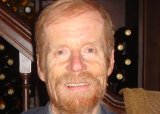 Standing under the Eiffel Tower on the last day of the climate conference in Paris, the solidarity I felt with the thousands of demonstrators from around the world was invigorating. I went as part of the Friends of the Earth action weekend because I’m certain that climate change is the greatest threat to global health and particularly to child health. This prediction was corroborated by speakers from some of the countries likely to be most affected, including El Salvador (flooding and increased hurricanes) and Nigeria (desertification, climate refugees, and the prospect of unbearable heat waves).
Standing under the Eiffel Tower on the last day of the climate conference in Paris, the solidarity I felt with the thousands of demonstrators from around the world was invigorating. I went as part of the Friends of the Earth action weekend because I’m certain that climate change is the greatest threat to global health and particularly to child health. This prediction was corroborated by speakers from some of the countries likely to be most affected, including El Salvador (flooding and increased hurricanes) and Nigeria (desertification, climate refugees, and the prospect of unbearable heat waves).
There is surely enough evidence on the impact of climate change on child health to convince any climate sceptic, and the latest comes from UNICEF.
UNICEF’s director Anthony Lake introduces the report thus: “There may be no greater, growing threat facing the world’s children—and their children—than climate change. This mounting global crisis has the potential to undermine many of the gains we have made in child survival and development—and poses even greater dangers ahead.”
Yet there is still a lack of urgency in government action, which is undoubtedly in part due to widespread climate change denial (or dissension, as George Marshall describes it), particularly in the United States. And why is it so widespread? I strongly recommend Marshall’s new book, Don’t Even Think About It, in which he points out the disconnect between our emotional and rational brains, and that we have an innate disposition to select or adapt information so that it confirms our pre-existing assumptions. The narratives we use can become culture specific, so that people who do not identify with the values of someone speaking (for example, those who dislike the term “environmentalist”) can reject the issue that’s being explained to them.
He describes how if we can engage in a shared project, this can overcome existing divisions. I shall try this approach in future!
Back in Paris, while the politicians were talking, a remarkable project was in progress on the streets at a time when there was a ban on large gatherings of people. In groups of five, we headed for pre-arranged, geo-mapped positions from where we connected to a special internet site and activated a link. This position then turned green on the map. See the final result here for the message printed out across Paris. I am proud to be part of the second T. Apart from the action and hearing directly from those attending the conference, we learnt of the stories of those who were deeply engaged at home in preventing further spiralling towards the two degree temperature rise.
When I left Paris on Sunday, the press headlines screamed about a successful outcome to COP 21. The feelings among the many activists were more muted, as there have been so many promises made in the past but not fulfilled. World leaders have to be kept to their word and the fossil fuels have to be kept in the ground. For sure, health professionals have a big part to play as part of civil society.
Tony Waterston is a retired paediatrician in Newcastle upon Tyne, working mainly in the community with long term conditions, disability, child abuse, and social and mental health concerns. His interests are in child public health, children’s rights, and global child health, and he leads the RCPCH teaching programme in the occupied Palestinian territories.
Competing interests: I am a member of the Climate and Health council.
